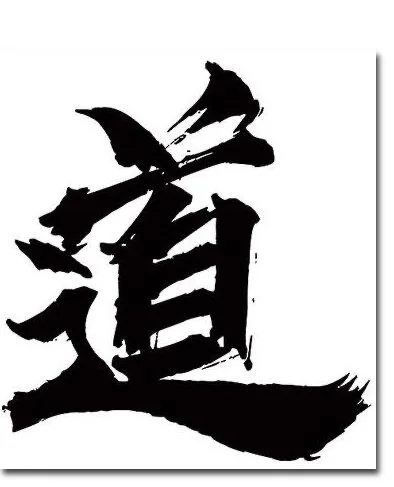
"Male and Female Differences and Strengths - The Yin Yang Perspective" by Felice Dunas
The most fundamental essential philosophies behind Oriental history, culture, religion, government and business is Yin Yang theory. This is one of the oldest cosmologies in all of human thinking. People have been using this understanding of life for over 5000 years. We don’t know its true historical timeline as archeological evidence can document only around 5000 years at present. Yin Yang theory works with the premise that all of life stems from a point of perfect balance. On either side of that balance you have the left and the right, the wet and the dry, the night and the day, the female and the male, the negative and the positive, multi-faceted focused, single goal focused, etc.
BE A SUPPORTER OF FELICE DUNAS’ WORK

“Mad Dash!” by William Martin
A new drive-through food establishment has opened in Chico. It’s called… wait for it… Mad Dash! The sign out front proudly proclaims, “Two slices of pizza and a drink in 90 seconds!” I’m thinking of opening a competing place called Instant Gratification! People will pull up to a pump, insert their credit card, stick a hose in their mouth and pump a liter of high fructose corn syrup directly into their gut. No muss, no fuss, no nutrients to get in the way and keep us from getting about the business of… whatever it is that is so urgent.

"Private "I," Private Property" (excerpt) THE TAO OF ABUNDANCE by Laurence Boldt
The primary or original consciousness, the Tao—the innate intelligence of the universe—is there all the while, whether we are aware of it or not. The man who has amnesia has not become someone else—he has simply forgot-1 ten who he is. In the Western world, which is today (in a cultural sense) ] most of the world, we have a collective amnesia regarding the unnameable Tao—we have lost touch with a consciousness that is prior to the ego. It is j not only that we have failed to open the Wisdom Eye; we have forgotten that it even exists. As a result, the field of consciousness available to us is limited to that defined by the ego.

"Why Doesn’t Asia Have Religion?" by Thomas David DuBois
Having spent the past 10 years writing and teaching on Asian religions, I now have something to confess:
Asia does not have religion.
“But what,” you may ask, “about that college class I took on ‘world religions?’ We learned about Hinduism, Confucianism, Daoism (Taoism) and Shinto. Half the class was about Asia.”
Between you and me, I hate that class. I hated it as a student, because I thought it didn’t make sense. I hate it even more as a professor, because I know it doesn’t make sense. Here’s why.
BE A SUPPORER OF THE HUFFINGTON POST AND THE WORK OF THOMAS DAVID DUBOIS

"Abiding in the Tao" (excerpt) THE TAO IS SILENT by Raymond M. Smullyan
In the Judeo-Christian religions, one hears much of “fear of God” and “love of God”—also “obedience to God”. In early Chinese Taoism, one speaks not so much in terms of “love of Tao”—and certainly not “fear of Tao”!—but rather of “being in harmony with the Tao”.

"The Tao Does Not Command" by Raymond M. Smullyan (excerpt) THE TAO IS SILENT
The great Tao flows everywhere, to the left and to the right All things depend upon it to exist, and it does not abandon them. To its accomplishments it lays no claim. It loves and nourishes all things, but does not lord it over them.
(Laotse, tr. Alan Watts)
That is another thing so nice about the Tao; it is not bossy! It loves and nourishes all things but does not lord it over them. Thus the Tao is something purely helpful—never coersive!
In the Judeo-Christian notion of God, one thing which is so rigidly stressed is obedience to God! The great sins are “disobedience, rebellion against God, pride, self-will”, etc. The Christians are constantly stressing the infinite importance of “total surrender of one’s will to God”. They say, “Let thy will, not mine, be done”.

"Insecurity" by William Martin
The vast majority of people who have existed on this small blue dot of a planet have experienced lives filled with uncertainty and insecurity, yet have still managed to create beauty in the midst of ugliness, compassion in the midst of hate, and courage in the midst of fear. My grandparent’s generation saw millions of young men die in the carnage of the trenches of World War I. Half a century earlier their own grandparents watched a civil war tear the country apart. My parent’s generation lived for years not knowing whether or not the darkness of the Third Reich would engulf them. The American Revolution itself turned on a dime and those we call “Founding Fathers” could easily have been hanged as traitors and terrorists and we today might well be, along with Canada, part of the British Commonwealth.

“Philosophy of the Tao” by Alan Watts
The subject of this seminar is going to be Taoism as contained in the teachings of Lao-Tzu and Juang-Tzu who lived approximately 400 years or more before Christ, separated probably by 100 years from each other. And as is often repeated, Lao-Tzu started out by explaining that "The Tao which can be explained is not the eternal Tao," and then went on to write a book about it, also saying "Those who say do not know; those who know do not say." Because there's nothing to be explained. You must remember that the word "explain" means to lay out in a plane. That is, to put it on a flat sheet of paper.
PLEASE SUPPORT THE ALAN WATTS PROJECT

Maslow’s Hierarchy of Needs and the World’s Religions by Laura E. Shulman
The human pursuit of religion serves a function in our lives. There is a purpose or goal to being religious. Be it the goal of salvation or enlightenment, comfort and guidance for living a moral life, or any of a number of other “higher” purposes in life, religions clearly encourage us to move beyond a life motivated by self-centeredness and pure animal instincts for mere survival. This observation about the ultimate goals, purpose or function of religion can be related to the classic theory of a hierarchy of human needs proposed by Abraham Maslow (1908-1970). 1,2
Religion tends to fulfill the higher needs. Starting with a need for the comfort and camaraderie of community, religion also addresses our need to respect and be respected by others [the “Golden Rule”] and, ultimately, to be all that we can be as “God” created us to be or, in the case of many Eastern religions, to become “enlightened” – thus “self-actualized”.
PLEASE SUPPORT RELIGIOUSTOLERANCE.ORG

“You Know Nothing, Jon Snow” by Galen Pearl
Game of Thrones fans will recognize this line, spoken to Jon Snow repeatedly by the wildling woman he fell in love with, and who died in his arms with these words on her lips.
The universe has conspired lately to remind me that, like Jon Snow, everything I think I know ... I don’t. No matter where I turn – to family, to friends old and new, to martial arts, to life in general – I am confronted by my absolute ignorance of, well, everything. It is disorienting and decidedly uncomfortable. Sometimes scary. At the same time, it is intriguing, exciting, and occasionally even fun.
MS. PEARL’S WEBSITE IS FILLED WITH GEMS!

“TAOISM” by Huston Smith
No civilization is monochrome. In China the classical tones of Confucianism have been balanced not only by the spiritual shades of Buddhism but also by the romantic hues of Taoism.
The Old Master
According to tradition Taoism (pronounced Dowism) originated with a man named Lao Tzu, said to have been born about 604 B.C. He is a shadowy figure. We know nothing for certain about him and scholars wonder if there ever was such a man. We do not even know his name, for Lao Tzu—which can be translated “the Old Boy,” “the Old Fellow,” or “the Grand Old Master”—is obviously a title of endearment and respect. All we really have is a mosaic of legends. Some of these are fantastic; that he was conceived by a shooting star, carried in his mother’s womb for eighty-two years, and born already a wise old man with white hair. Other parts of the story do not tax our credulity: that he kept the archives in his native western state, and that around this occupation he wove a simple and unassertive life. Inferences concerning his personality derive almost entirely from a single slim volume that is attributed to him. From this some conclude that he was probably a solitary recluse who was absorbed in occult meditations; others picture him as down to earth—a genial neighbor with a lively sense of humor.

"Jesus and the Tao" by Francis Ritchie
If you have an aversion to Eastern philosophy (even though Christianity is, by origin, an Eastern religion), bear with me, I think you’ll find this interesting anyway. I’ve been trying to find a cohesive way of expressing what I believe the person of Jesus calls us towards that steps into something much deeper than just a conversion to a codified religion and its accompanying world-view (Christianity). The Tao (Dao) offers something into this space. With that in mind, here I want to explore Jesus and the Tao.
BE A SUPPORTER OF REV ’S RITCHIE’S WORK

Tao Te Ching – Chapter 64 (Part 1 and 2) by Galen Pearl
This uncharacteristically long chapter comprises several parts that may at one time have been separate. It reminds me of the book of Proverbs in the Bible, which contains many pearls of wisdom that can be considered as stand alone verses. Because of its length, I’m going to break discussion of this chapter into two posts.
BE A SUPPORTER OF MS. PEARL’S WORK

